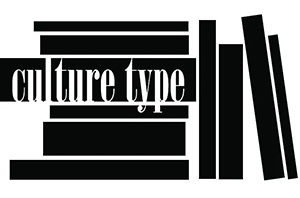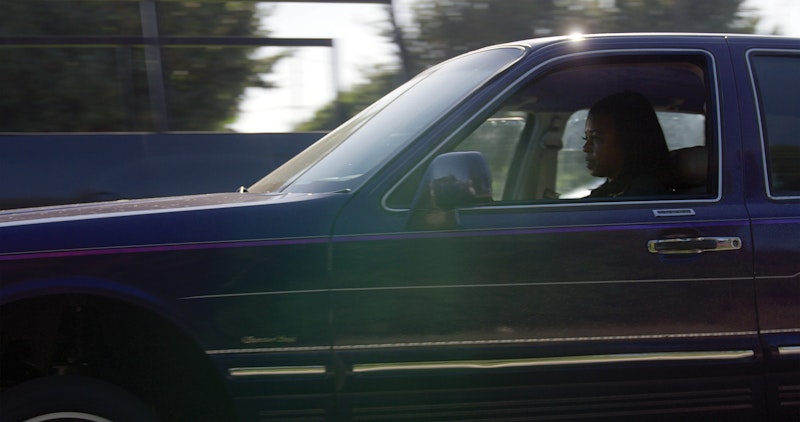
- Source: CULTURE TYPE
- Author: VICTORIA L. VALENTINE
- Date: MARCH 9, 2024
- Format: DIGITAL
Cauleen Smith is Shining a Light on the Powerful Poetry of Wanda Coleman and the Contours of Los Angeles that Inspired Her

CAULEEN SMITH, Still from “The Wanda Coleman Songbook,” 2024. The installation is accompanied by limited edition soundtrack with contributions by Kelsey Lu, Shala Miller, moor mother and Aquiles Navarro, Meshell Ndegeocello, Jeff Parker and Ruby Parker, Alice Smith, and Jamila Woods and Standing on the Corner. | © Cauleen Smith. Courtesy the artist and 52 Walker, New York, N.Y.
A GREAT AMERICAN POET, Los Angeles-based Wanda Coleman (1946-2013) knew firsthand about poverty, racism, love, violence, and inequality, all of which she wrote about in powerful verse that was sharp, clever, and candid. Her work elicited both laughter and tears from those who read her words or had the opportunity to hear her recite them aloud.
Known for her experimental films, interdisciplinary artist Cauleen Smith is presenting an immersive, cinematic, and multi-sensory installation inspired by the practice of the late poet. Coleman’s poignant work captured the cultural and political essence of Los Angeles. Her perspectives resonated with Smith and served as a beacon when she returned to the city after being away for 16 years.
Curated by gallery director Ebony L. Haynes, “Cauleen Smith: The Wanda Coleman Songbook” is a video installation capturing a variety of totems, from palm trees and the expanse of the Pacific Ocean to car culture, the crisis of the unhoused, scenes of Black Los Angeles, and landmarks such as Griffith Observatory. The footage was shot by Smith in the fall of 2023. The exhibition is effectively a multiscreen installation with the video projected directly onto the gallery walls. Large rugs are layered on the floor and sofas invite viewers to sit and take the time to experience the work.
The video installation is accompanied by a “soundtrack,” vinyl, limited-edition 12-inch EP featuring songs by Meshell Ndegeocello, among others. Commissioned by Smith, the songs are inspired by Coleman’s poems. Visitors to the exhibition are encouraged to play tracks from the EP on a turntable as they view the work and publications of Coleman’s poetry are available to read. They can depart with memories of the show in the form of paper blotters printed with poetry excerpts and sprayed with a special scent created by agustine zegers.
COLEMAN GREW UP IN WATTS in the 1950s and 60s and became a well-known figure in the literary community of Los Angeles. In her obituary, the Los Angeles Times called Coleman “the unofficial poet laureate of Los Angeles.” She pursued an array of writing, working as a journalist, magazine editor, and penning television scripts for a daytime soap opera, before she focused on poetry.
Between 1977 and 2008, Coleman published a number of books and poetry collections with Black Sparrow Press, a small independent press. Two were particularly well received.“Bathwater Wine” (1998) won the 1999 Lenore Marshall Poetry Prize from the Academy of American Poets and “Mercurochrome: New Poems” (2001) was a finalist for the National Book Award in Poetry. In 1984, she was awarded a Guggenheim fellowship.
The accolades didn’t shift her circumstances, however. In her lifetime, Coleman never received the kind of broad interest and critical recognition her work deserved and is beginning to receive posthumously. Terrance Hayes is a poet, MacArthur Fellow (2014), and former poetry editor for New York Times Magazine (2017-18). He knew and was influenced by Coleman. In 2020, Hayes edited a collection of her poetry, drawing from her Black Sparrow publications. “Wicked Enchantment, Selected Poems” features 130 poems by Coleman and has garnered rave reviews.
The Washington Post included the volume among its Best Poetry Collections of 2020. John Yau wrote in Hyperallergic: “By my reckoning, there are more than a dozen poems in Hayes’s astute gathering that should be widely anthologized, certainly as much as any poem by Sylvia Plath, Elizabeth Bishop, Robert Lowell, or O’ Hara. The fact that they aren’t speaks to the continuing rifts in America’s segregated cultural history. Langston Hughes and Amiri Baraka have passed muster, but Coleman hasn’t.” Writing about the book in The New Yorker, Dan Chiasson called Coleman, “One of the greatest poets ever to come out of L.A.,…”
In a conversation produced by The Brooklyn Rail, Smith spoke with Zoë Hopkins about the exhibition and explained how her interest in Coleman gave rise to her latest work. “A way that I like to make work is kind of like learning through the thoughts and materials, I guess, the studies of others, whether it’s Sun Ra or Wanda Coleman or Alice Coltrane or Rebecca Cox Jackson… While I’m thinking about them, I’m trying to place myself in relation to them, almost like a student,” Smith said.
“I’m trying to sort of demonstrate what I’m learning in the things that I’m making or amplify or amend and annex on or through and with what they’ve already sort of built… I think that’s how I think of the work… I think the honoring just comes through the kind of deep study that I want to do with them and how profoundly I feel their influence.”
“Cauleen Smith: The Wanda Coleman Songbook” is on view at 52 Walker Gallery in New York, N.Y., from Jan. 19—March 16, 2024

